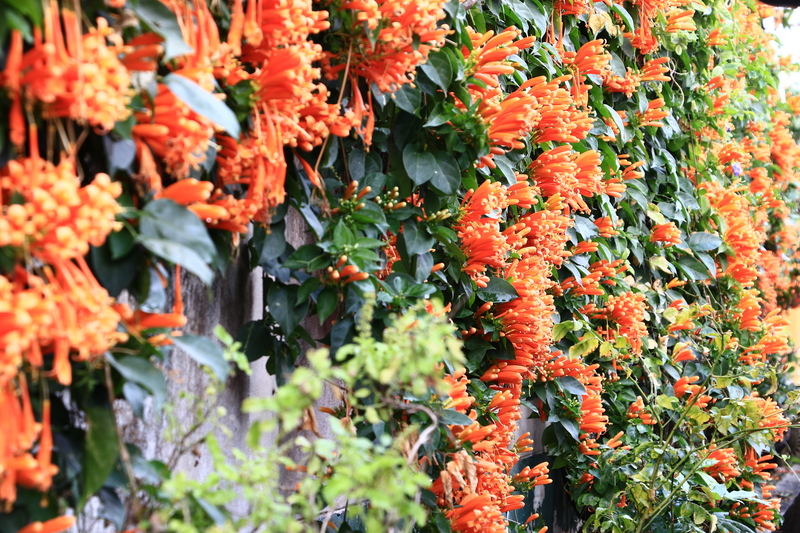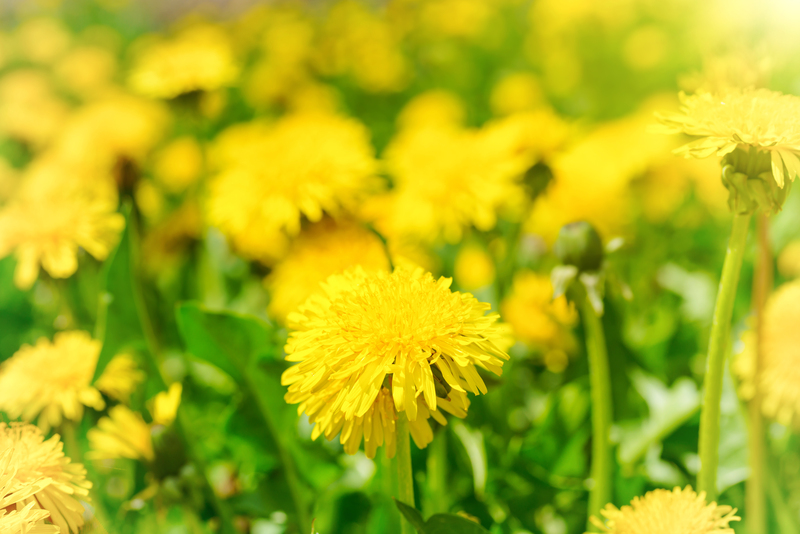Nurture Peace and Mindfulness with Zen Garden Creativity
Posted on 16/09/2025
Nurture Peace and Mindfulness with Zen Garden Creativity
Discover how cultivating a Zen garden can become a life-changing source of peace, mindfulness, and creative expression. Learn the essentials of Zen garden design, its history, and actionable tips to create your own tranquil space.
Introduction: Discovering Serenity through Zen Garden Creativity
In today's fast-paced world, peace of mind and mindfulness are becoming rare treasures. One effective way to nurture these qualities is by engaging in Zen garden creativity. A Zen garden is more than just an esthetic feature; it's a centuries-old practice that encourages tranquility, reflection, and focus. By designing, building, and maintaining your own Zen space, you can nurture peace and foster a lasting sense of well-being.
This comprehensive guide delves into the art and benefits of Zen gardens, provides inspiring design ideas, and walks you step-by-step through the process of creating your own creative, peaceful sanctuary.

What is a Zen Garden? Origins and Philosophy
Zen gardens, also known as Japanese rock gardens or karesansui (dry landscape gardens), originated in Japan during the Muromachi period (1336-1573). Unlike traditional gardens filled with lush vegetation, Zen rock gardens use rocks, sand, and minimalist elements to symbolize landscapes and natural elements. These spaces are not only for visual pleasure, but also for stimulating contemplation and nurturing mindfulness.
Key Elements of Zen Garden Design
- Sand or Gravel: Represents water and is raked into calming patterns to promote meditative focus.
- Rocks and Stones: Symbolize islands, mountains, or natural obstacles, placed with careful intention.
- Moss or Minimal Plants: Adds color and life, representing growth and the passage of time.
- Bridges, Lanterns, or Ornaments: Used minimally and carefully, these elements enhance contemplation and add symbolic meaning.
The simplicity of a Zen garden encourages visitors to engage with the space on a deeper level, making it an ideal avenue for nurturing peace and practicing mindfulness.
The Benefits of Nurturing Peace with Zen Creativity
Modern life is fraught with distractions and stress. Creating and maintaining a Zen garden sanctuary has numerous physical, emotional, and mental benefits:
- Reduces stress: The act of raking sand or arranging rocks can be deeply calming.
- Enhances mindfulness: Focusing on the present moment while tending your garden strengthens mindfulness skills.
- Boosts creativity: Designing and reimagining your garden fosters creativity in a quiet, non-judgmental environment.
- Encourages meditation: The tranquil atmosphere is perfect for practicing meditation or simple quiet reflection.
- Promotes well-being: Interaction with natural elements has been shown to lower blood pressure and improve mood.
Why Mindfulness and Peace Matter
Peace and mindfulness are the foundations of a meaningful, purposeful life. By engaging in Zen garden creativity, you learn to let go of perfectionism, embrace the present, and appreciate the subtle beauty in simplicity. These skills will echo through every aspect of your life beyond the garden.
Getting Started: Creating Your Zen Garden Sanctuary
Starting your own Zen garden doesn't have to be intimidating or expensive. Whether you have a spacious backyard or a small apartment balcony, you can create a nurturing, peaceful retreat with just a few essentials.
Step-by-Step Guide to Zen Garden Creativity
-
Choose Your Location
Select a quiet spot where you can sit, relax, and reflect. Some people prefer outdoor gardens, while others create mini Zen gardens for desks or small indoor spaces. -
Select Your Materials
Basic supplies include sand or fine gravel, rocks of various sizes, and optional features such as a bench or small bridge. For mini gardens, use a tray as your base. -
Design Your Layout
Arrange rocks thoughtfully. Odd numbers are traditional in Zen gardens, as they are considered more harmonious. Sand should be spread smoothly and raked into soothing patterns. -
Add Personal Touches
Include moss, minimalist plants, or simple ornaments. Avoid clutter; focus on creating balance and harmony. -
Engage in Mindful Maintenance
Regularly tend to your garden. The act of raking, adjusting stones, and refreshing design is a form of moving meditation that nurtures peace.
Inspiration: Zen Garden Design Ideas to Unleash Creativity
Looking for inspiration? Here are several creative approaches to nurture serenity and encourage mindfulness through your Zen garden:
1. Classic Minimalist Zen Garden
- Use pale gravel, a handful of large stones, and minimal plant life.
- Emphasize open space for contemplation and serenity.
- Perfect for those who value simplicity and understated elegance.
2. Moss Garden Oasis
- Integrate different mosses for lush, varied greens.
- Incorporate stepping stones or a gently curved path.
- Moss absorbs sound and enhances the garden's natural tranquility.
3. Water-Inspired Zen Garden
- Use raked sand or gravel to represent flowing rivers or rippling ponds.
- Add a low fountain or bamboo water feature for soothing sounds.
- Combine with traditional stones for a deeper sense of peace and mindfulness.
4. Tabletop or Desktop Zen Garden
- Ideal for small spaces and busy lifestyles.
- Use a shallow wooden box, some sand, a few pebbles, and a miniature rake.
- Provides a quick, calming break from work or study while nurturing creativity.
5. Modern Zen Garden with Artful Elements
- Experiment with contemporary materials like glass, metal, and sculptural features.
- Blend traditional Zen principles with modern design to reflect your unique personality.
- Focus on clean lines, geometric shapes, and an uncluttered layout.
Embracing Mindfulness: Zen Garden Rituals for Inner Peace
Cultivating a mindful routine in your Zen garden will amplify its benefits and deepen your sense of inner peace. Here are some Zen-inspired rituals to incorporate into your daily life:
- Morning Reflection: Spend a few moments sitting quietly in your garden, breathing deeply, and setting positive intentions for the day.
- Raking Meditation: Hold the rake loosely, let your thoughts come and go, and create patterns in the sand, focusing fully on the movement and texture.
- Stone Placement Ceremony: Rearrange the positions of rocks to symbolize shifting perspectives and the impermanence of life.
- Seasonal Refresh: Change small plant or moss arrangements to reflect the rhythms of nature and encourage gratitude for each season.
These rituals are simple yet profoundly effective in helping you develop mindfulness and peace, both in your Zen garden and in everyday living.
Zen Garden Creativity for All Ages
Zen gardens aren't just for adults seeking tranquility; they can be a powerful tool for children and teens as well. Creating and caring for a Zen space nurtures creativity, focus, and emotional intelligence at any age. Here's how:
- Creative Play: Children can experiment with patterns, colors, and textures, sparking imagination.
- Mindful Breaks: Teens and students can use a mini Zen garden to de-stress during study breaks.
- Family Bonding: Building or refreshing a garden together encourages cooperation, patience, and shared mindfulness.
Tips for Zen Gardens with Kids
- Use non-toxic, safe materials.
- Let them choose a favorite stone or plant to personalize the space.
- Encourage gentle, intentional movements to nurture peace through creativity.

Common Questions: Zen Garden FAQs
Is it difficult to maintain a Zen garden?
No! Part of the appeal is their low-maintenance nature. Raking sand, adjusting rocks, and trimming small plants can be relaxing, mindful activities. Mini Zen gardens, in particular, are practically effortless to maintain.
Do I need a large space to nurture mindfulness with Zen gardening?
Not at all. Even the smallest tabletop garden can deliver the benefits of peace and mindfulness. The quality of your intention and attention matters more than the garden's size.
What materials should I use in a peaceful Zen garden?
Stick to natural elements: sand or gravel for raking, rocks of varying shapes and sizes, and simple additions such as moss, bamboo, or minimalist ornaments. The aim is to keep the space uncluttered and balanced.
How can Zen garden creativity help with stress relief?
The combination of repetitive actions (like raking), connection with nature, and creative freedom activates the relaxation response, lowers cortisol levels, and provides a break from digital stimulation, nurturing peace naturally.
Conclusion: Embrace Lasting Peace and Well-Being with Your Zen Garden
Engaging in Zen garden creativity is far more than arranging rocks and sand; it's a mindful practice, an artistic journey, and a lifelong invitation to nurture peace within yourself. Whether you design a grand outdoor garden or cultivate a tiny oasis on your desk, the benefits of tranquility, self-awareness, and creative expression will enrich your life in countless ways.
Start small, remain curious, and let your Zen garden become a personal haven--a place where peace, mindfulness, and creativity unite. Experience the transformative power of Zen garden creativity today and embody tranquility wherever life leads you.

